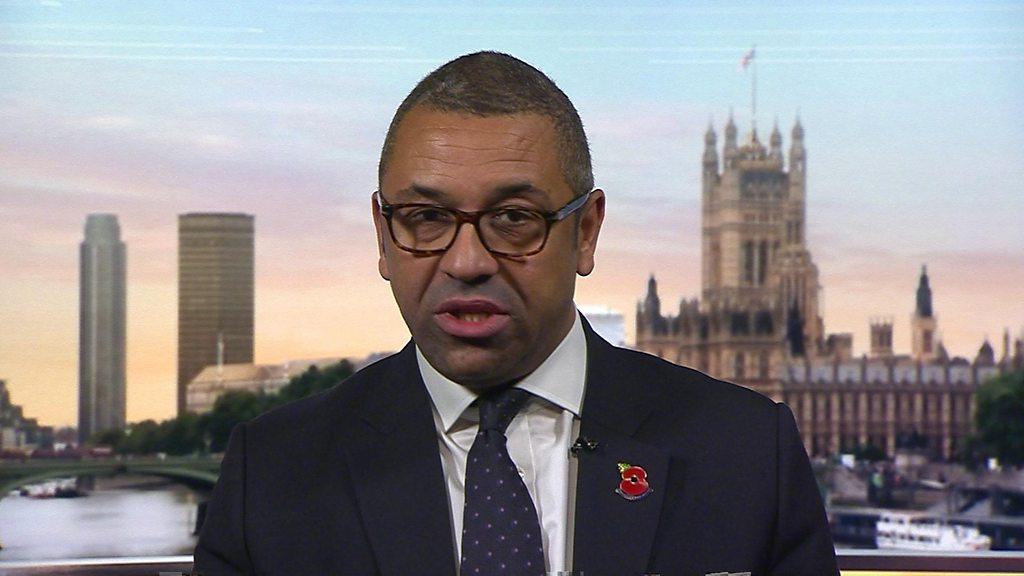General election 2019: Social media controversy 'spreads messages'
- Published

Political parties want content to be shared but are also using paid-for social media advertisements aimed at specific voters
Controversy over social media election campaign posts is potentially helping spread political messages, according to one media analyst.
Even perceived missteps can work to a party's advantage, said Cardiff University academic Matt Walsh.
One example, he said, was when the Conservatives were criticised for posting an edited video of Labour's Keir Starmer.
"Was the Keir Starmer video a cock-up or a conspiracy? It's hard to say."
But Mr Walsh said the Tories may still have benefitted from the video being shared widely and its message being spread.
Allow X content?
This article contains content provided by X. We ask for your permission before anything is loaded, as they may be using cookies and other technologies. You may want to read X’s cookie policy, external and privacy policy, external before accepting. To view this content choose ‘accept and continue’.
He said: "This is a new area for the parties. They've only really been doing it for the last five years. So, clearly there are going to be times when things happen that they don't expect.
"But on the other hand, people sharing and reacting to that video meant that a lot more people saw that video than would have been the case otherwise. So that is now one of the most-watched videos for the Conservative party of the campaign on Twitter.
"Those people wouldn't necessarily have been exposed to the message that the Conservative party was getting across if there hadn't been a controversy. Was the controversy worth it?
"That's another question and I think you would have to ask [the Conservatives] that."
How are political parties using targeted adverts?
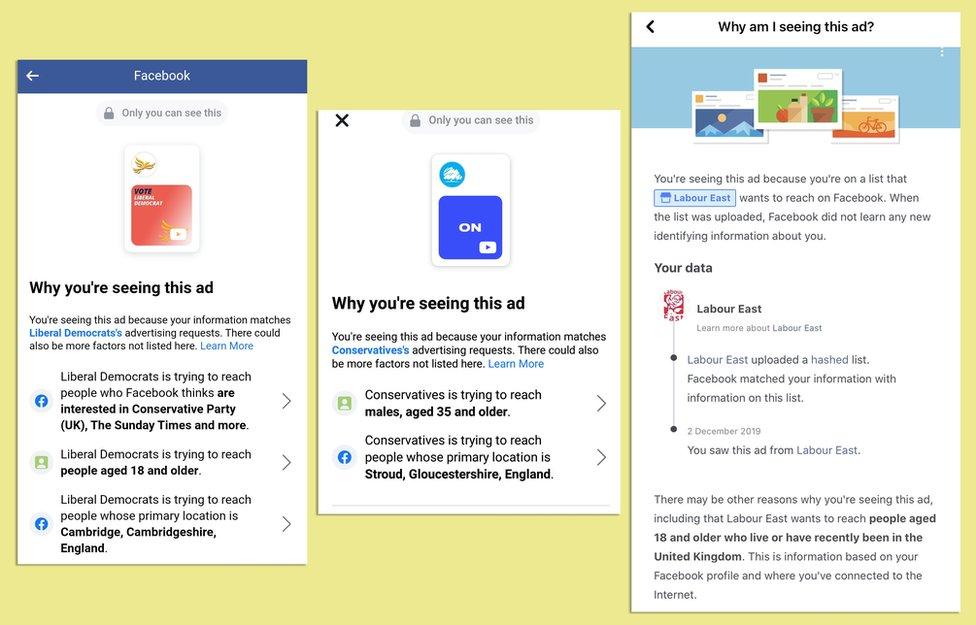
Targeted Facebook users get information about why they have seen an advert
Political parties are using videos and paid-for advertisements aimed at specific voters on platforms such as Facebook, Twitter and Instagram.
They have spent hundreds of thousands of pounds targeting voters with just under a week to go.
Mr Walsh, from Cardiff University's school of journalism, has been analysing the impact of political campaigning on social media and said politicians are drawing on their experience of targeting voters during previous elections.
Mr Walsh said: "The parties are applying the lessons that they have learned over the last two campaigns to try and get that message across to users in a really clear and authoritative way.
"So we are seeing lots of use, on Twitter particularly, of really short, sharp, strident messages from Jeremy Corbyn that are motivating his core users. But also that idea is being taken up by the Conservatives."
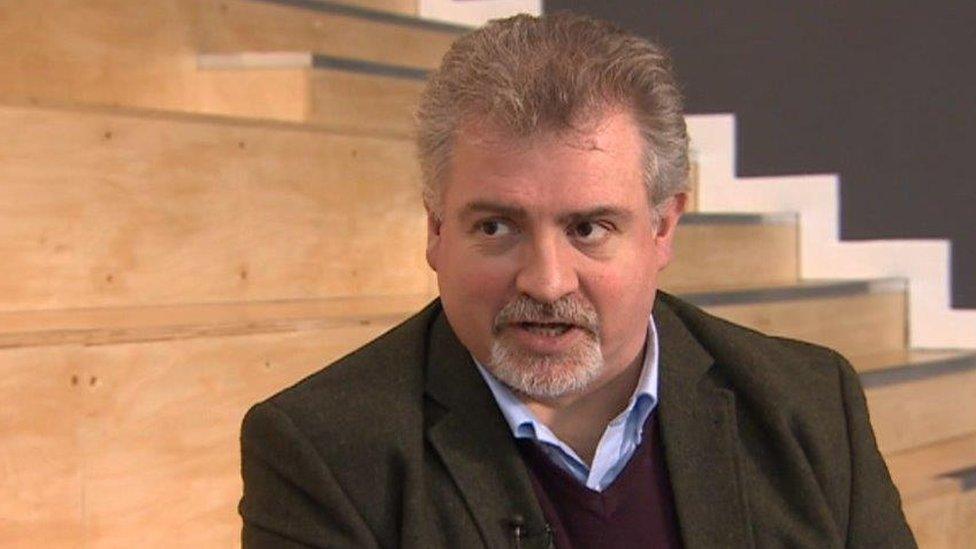
The social media effect is hard to measure, but parties don't want to be caught "flat-footed", says Matt Walsh
While the parties and groups aligned to them are producing videos to spread their own messages, or targeting perceived weaknesses in their rivals, they are also buying adverts on Facebook that are only seen by users who match the advertisers' criteria.
Thanks to Facebook's publicly available ad library, it is possible to see how much the parties and their candidates are spending on advertising each week, and how many adverts they are running.
The total changes daily, but some have been running thousands of advertisements at a time and the online campaign is likely to intensify as polling day nears.
They are also spending on ads elsewhere on platforms like YouTube, and by paying for their party websites to appear at the top of Google search results.
What effect could social media posts have on the election?
However, Mr Walsh said it was tough to quantify the impact of this splurge.
"It is really hard to measure the effect that videos and political messages are having on social media.
"But what the parties want to avoid is being caught flat-footed. They don't want to create a situation where they fail to use a tool that would have an impact, and get them across the line to win the election.
"Although it is very hard to see what the effects are, even a marginal impact in this election which is so volatile could be enough to push them across for a majority."
- Published2 December 2019
- Published5 December 2019
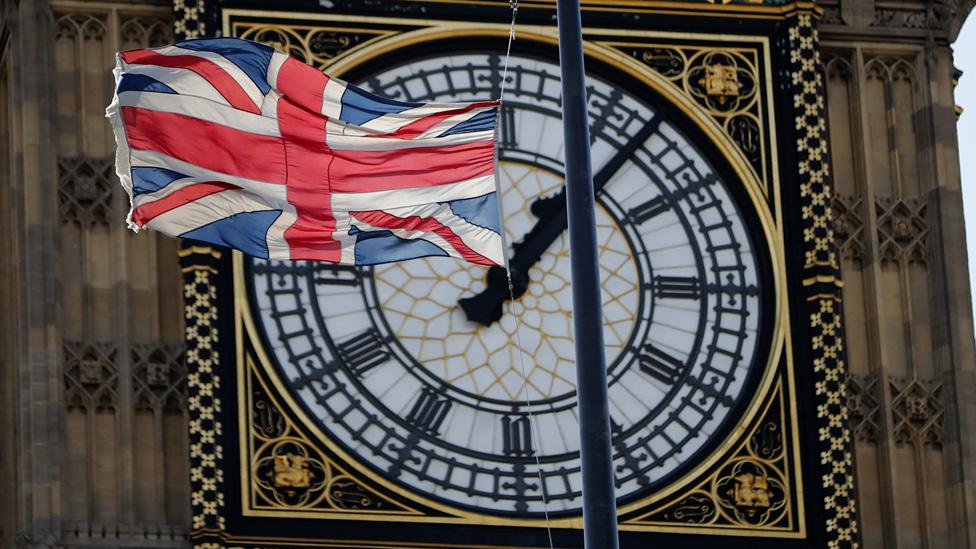
- Published11 December 2019
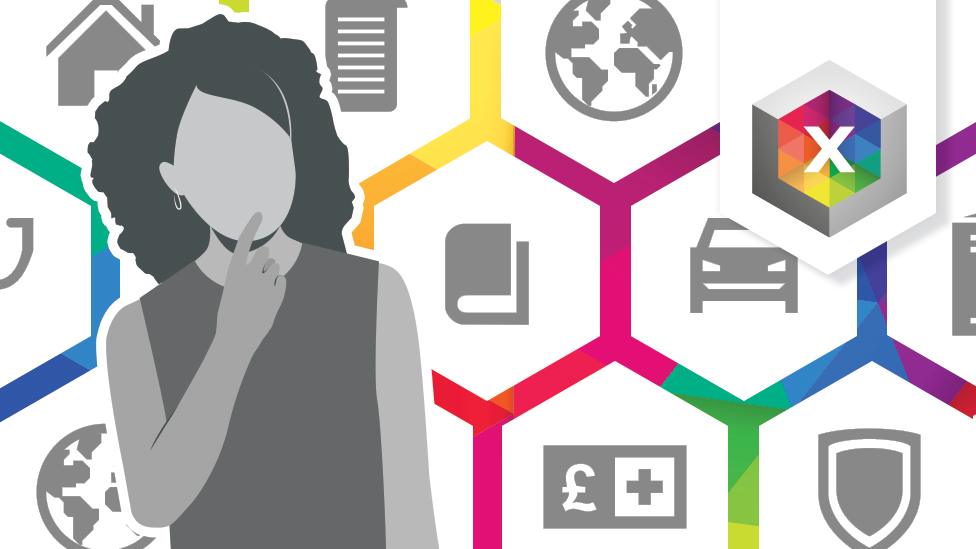
- Published6 November 2019
